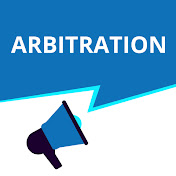Dallas Court of Appeals, No. 05-20-00776-CV (April 29, 2022)
Justices Reichek (Opinion, linked here), Nowell, and Carlyle
First National secured an award in arbitration against Bluestone. When First National sought confirmation of the award, it requested post-judgment interest under the Finance Code. The trial court issued a final judgment confirming the award and ordering post-judgment interest on all sums awarded in the judgment. On appeal, Bluestone argued the trial court’s award of post-judgment interest was an impermissible modification of the arbitration award.
The Dallas Court of Appeals held chapter 304 of the Finance Code requires post-judgment interest on a judgment confirming an arbitration award. The Court cited section 304.003, which states that post-judgment interest accrues on any “money judgment of a court of this state.” Because the trial court’s judgment confirming First National’s arbitration award was a “money judgment of a court of this state,” First National was entitled to post-judgment interest.
The Court acknowledged that its decision departed from a line of cases holding that a court may award post-judgment interest only if the arbitrator awards it. The Court observed that those cases failed to differentiate between post-award interest (accruing from the date of the arbitration award) and post-judgment interest (accruing from the date of final judgment). Post-award interest ordered by a trial court but not the arbitrator amounts to an impermissible modification of an arbitration award. Post-judgment interest, on the other hand, accrues automatically under the Finance Code even if a court’s judgment does not specifically reference it. Awarding post-judgment interest in this context, therefore, is completely consistent with the general rule that courts may not modify arbitration awards, because the post-judgment interest applies to the judgment and not the award.
Given the split among the courts of appeals, and absent reconsideration en banc, the availability of post-judgment interest in arbitration confirmation proceedings appears bound for the Texas Supreme Court. Until then, Bluestone clarifies it’s available (and mandatory) in the Fifth District.


